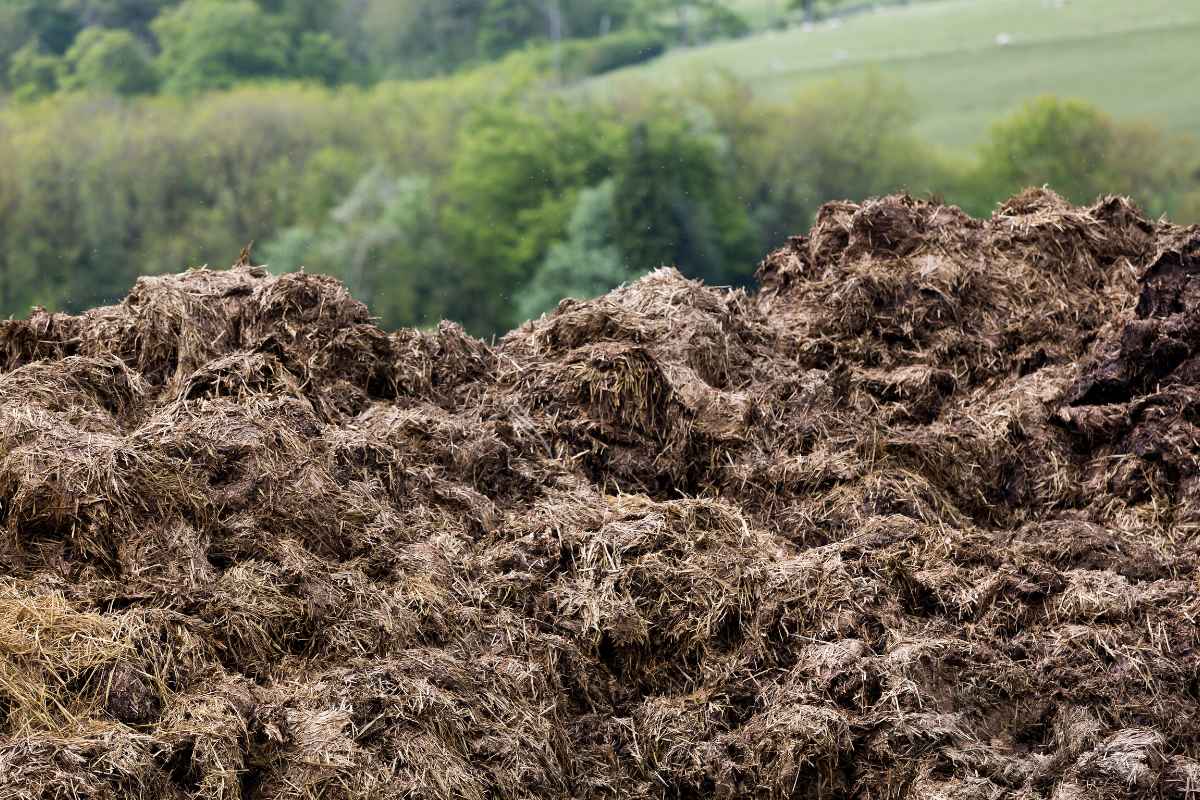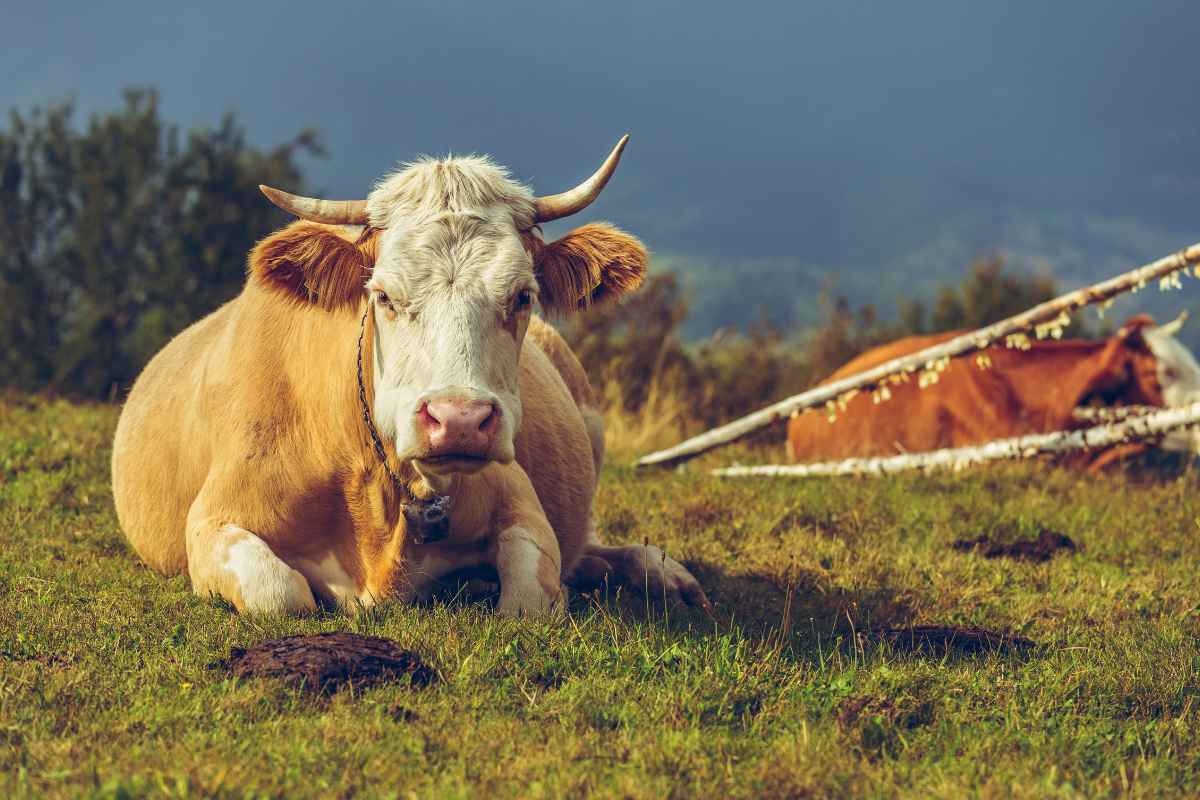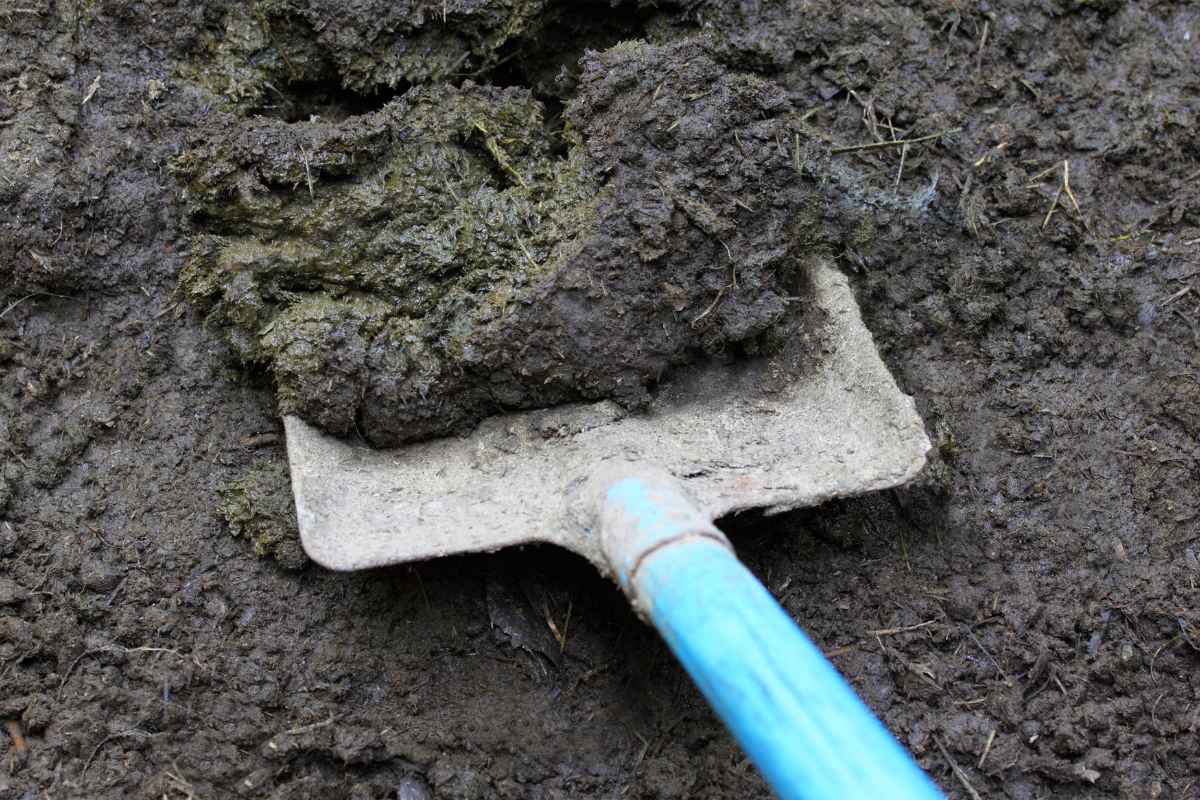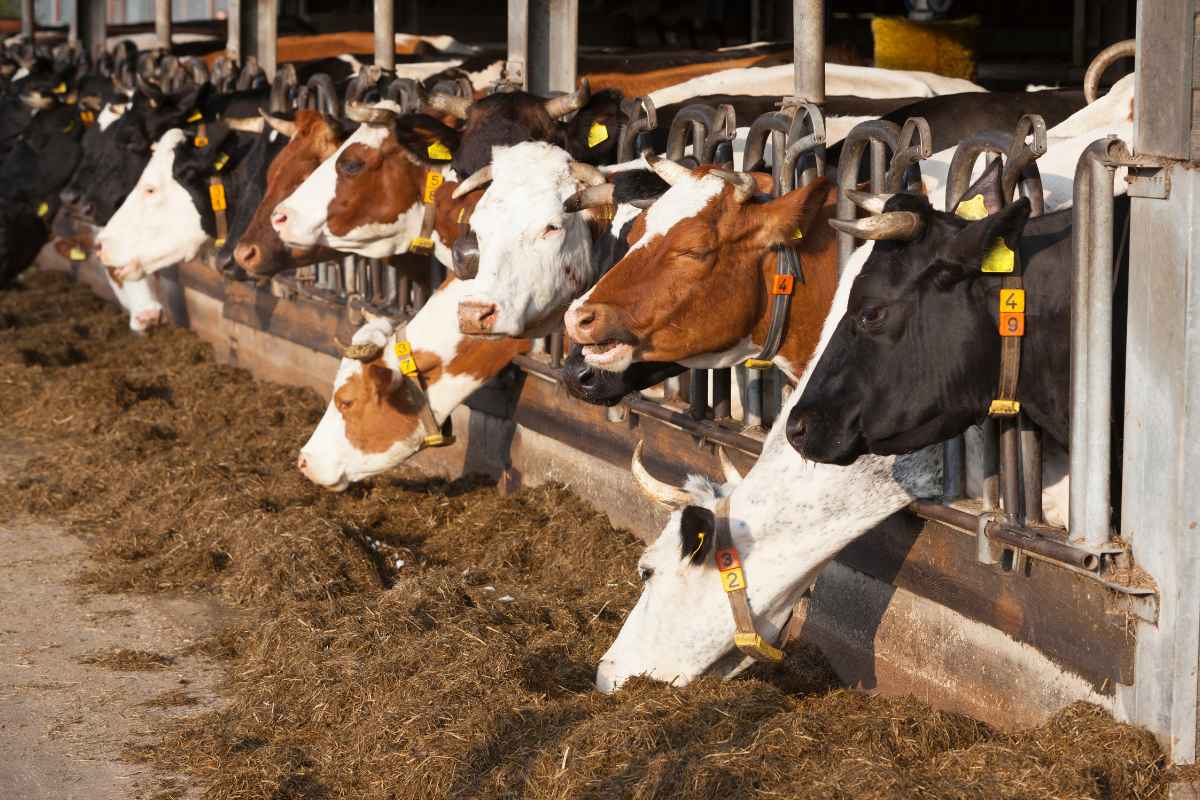Composting cow manure is a great way to recycle animal waste into nutrient rich soil. In fact, it’s the only way to get rid of cow manure without spreading it around the farm.
In this article, I will go into a bit more detail about composting cow manure and its benefits to your garden.
Is Animal Manure Safe to Compost?

Animal manure is a highly desirable additive to compost. They contain a host of nutrients and beneficial microorganisms.
However, the manure of carnivores and omnivores can have too many harmful pathogens to be considered useful as fertilizer. Manure usually has to be treated or left to decompose for a long time before you can use it as compost.
For more information on this, see my other articles, “Can I Compost Cat Poop?” and “Can I Compost Dog Poop?”
The best and safest type of manure to use is from animals that only eat plants, herbivores. The manure of any herbivore can be used as fertilizer, but it should still be left to rot for at least six months before being used on plants. If not, there may potentially be harmful pathogens and high levels of ammonia that may burn plants.
Cow dung has been a popular fertilizer for centuries, and since you have to leave it to rot anyways before you can use it, it is a perfect addition to your compost.
What is Cow Manure and Why is it Good as a Fertilizer

Cow manure is essentially digested grass and grain. It is high in organic material, which makes it a desirable additive to compost. As the organic matter has been processed through the cow’s digestive system, it is actually more nutritious for your plants than regular composted grass!
Cow manure contains all the major nutrients and ingredients that you want in your compost. It has roughly three percent nitrogen, two percent phosphorous, and one percent potassium.
Cow manure contains high levels of ammonia and potentially harmful pathogens. For this reason, you cannot use fresh cow dung in your garden and have to leave it to rot for at least six months before you use it near your plants.
Benefits of Cow Manure
Cow manure is an excellent addition to your compost as it contains beneficial bacteria, nutrients, and a lot of organic material that will improve the quality and composition of your soil.
Cow dung will help with moisture retention, aeration, and drainage of your soil and will improve the condition of any soil. If your compost is looking a bit dry or taking too long to decompose, adding cow manure will help fix this problem.
How to Compost Cow Manure

As with any manure, it is advisable to take precautions when composting cow dung. Fresh manure can contain pathogens that are harmful to humans, so always wear gloves and goggles when handling cow dung.
It’s also advisable to wear a mask covering your mouth and nose when collecting fresh droppings. Cow manure is high in nitrogen content and doesn’t smell too pleasant.
For that reason, it is a good idea to completely cover it with brown, carbon-rich materials to ensure it properly decomposes and limits the amount of odor omitted.
Read more about brown and green compost materials.
The higher nitrogen levels classify cattle manure as green material and should always be added in conjunction with brown materials. Straw is a beneficial material to add with cow manure as it soaks up any excess moisture and helps create a lovely well-balanced compost.
Cow manure will take six months to mature enough to be suitable to use in your garden, so you should keep this in mind depending on your method of composting. If you have a composter that gives you quick results, like a tumble composter, then you should leave the manure to age before adding it to your composter.
Some gardeners will leave manure for a year before using it in their garden. Manure can be covered when stored to dry it out. That composting process gives it more nutrients per ton than wet manure. That’s another reason you’ll want to keep your cow manure compost away from water sources.
Cow manure is great to use when hot composting and can even be added to a hotbin. Hot composting allows the compost’s internal temperature to be high enough to kill off weed seed, dangerous pathogens, and ammonia gas.
If you are using a hotbin, be sure you wipe down the inside of the hotbin after composting any types of manure. Whether it’s horse manure, sheep manure, pet manure, chicken manure, or cow, you’ll want to clean off the compost bins.
Manure can be used in vermicomposting, but you should let it rot down a bit first to ensure all the weed seeds have been killed, and the levels of nitrogen and salts are lowered.
How to Get Cow Manure

Cow manure can be incredibly easy to access. The best way is to contact your local dairy farm and ask if you can collect some dung; no doubt they will accommodate you!
If you don’t live anywhere near a dairy farm, or you don’t like the idea of putting cow dung in your car, then you can buy it online.
The benefit of this is that it will already have aged and will be suitable to use immediately. The downside is the cost, as you can probably get fresh cow manure for free if you live near anywhere that grazes cattle.
To learn more about compost ingredients and what you can compost, check out these articles:
Cow Manure FAQs
How long does it take for cow manure to compost?
Cow manure takes approximately 6 months to fully compost. The time can vary based on the quality of the manure and the environment. This means that you should plan ahead when using this method. You will need to keep the manure moist until it starts to smell bad. Once it smells bad, you can turn it over and let it decompose further.
Can I use fresh cow manure in my garden?
Yes, you can use fresh cow manure in your garden. However, it is also very acidic and can burn roots when used fresh. Use fresh cow manure sparingly and avoid using it near fruit trees. It’s best to compost fresh cow manure for about six months before using manure. Well-rotted manure mixed with brown materials like sawdust and brown leaves are best.
Is bagged cow manure composted?
Yes, bagged cow manure is already composted. Bagged cow manure is often used as fertilizer because it’s a good source of nitrogen. Composted cow manure is typically made by mixing fresh cow manure with wood chips or sawdust. This process breaks down the manure into smaller pieces and allows it to decompose faster. Bagged cow manure can be found in local nurseries, garden stores, and online.
How can you tell if compost manure is ready?
You can tell when compost manure is ready by looking at the color of the finished product. Finished and ready compost should be dark brown and feel like rich earth that crumbles in your hands. It should smell fresh too.
Does cow manure burn plants?
Yes, fresh cow manure can burn plants due to the high ammonia levels and harmful pathogens. You can avoid burning plants by making sure the fresh manure is composted. It will usually take about 6 months for fresh manure to become finished compost to use in your gardens.
Is cow manure good for tomatoes?
Cow manure is a great fertilizer for tomatoes, but only if it’s been composted. Fresh cow manure contains lots of nitrogen and ammonia, which can lead to burned plants and tomatoes. Always compost the cow manure fully before using with your tomatoes.
Can you put manure on top of soil?
Manure can be added to the top of the soil. However, this practice is discouraged because it can cause nutrient imbalances in the soil. Fresh manure can also attract pests such as pests and scavengers. It’s best to mix in well-rotted, composted manure with soil. Fresh manure should not be used directly.
How do you mix cow manure with soil?
Mixing cow manure with soil is a great way to fertilize your garden. The general guideline is 1 part manure with 3 part quality soil. If you have lower quality soil, you need to make up for the lack of nutrients in the poor soil with more compost that’s nutrient-rich. You can have an equal 50/50 ratio of manure to soil in that situation. Mixing cow manure into your soil will help make sure that your plants receive everything they need to grow healthy and strong.

